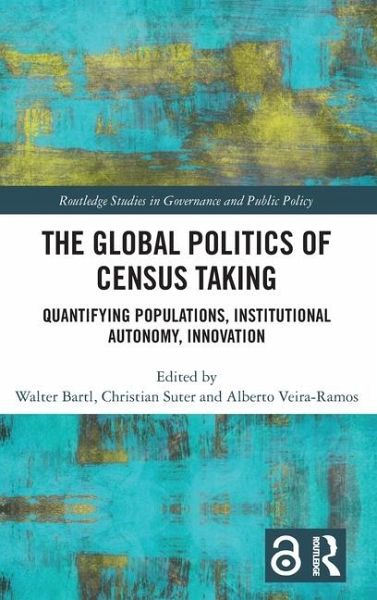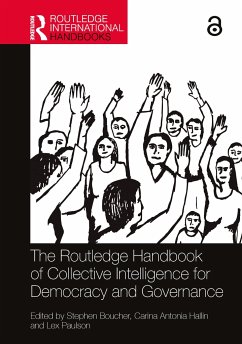
The Global Politics of Census Taking
Quantifying Populations, Institutional Autonomy, Innovation
Herausgegeben: Bartl, Walter; Suter, Christian; Veira-Ramos, Alberto
Versandkostenfrei!
Versandfertig in 6-10 Tagen
154,99 €
inkl. MwSt.
Weitere Ausgaben:

PAYBACK Punkte
77 °P sammeln!
This book examines in detail the state of the art on census taking to spark a more vivid debate on what some may see as a rather technical - and hence uncontroversial - field of inquiry.Against the backdrop of controversy between instrumental and performative theoretical stances towards census taking, it analyses the historical trajectories and political implications of seemingly technical decisions made during the quantification process by focusing on the 2020 round of censuses, which have been particularly revealing as activities have been affected by the ongoing COVID-19 pandemic and the en...
This book examines in detail the state of the art on census taking to spark a more vivid debate on what some may see as a rather technical - and hence uncontroversial - field of inquiry.
Against the backdrop of controversy between instrumental and performative theoretical stances towards census taking, it analyses the historical trajectories and political implications of seemingly technical decisions made during the quantification process by focusing on the 2020 round of censuses, which have been particularly revealing as activities have been affected by the ongoing COVID-19 pandemic and the ensuing containment policies. Through case studies of countries from the Global North and the Global South, the book highlights the consequences of, and innovations and challenges in census taking focusing on three particular areas of concern - the politics of the census in terms of identity politics; the institutional autonomy of the census; and significant and transformative methodological innovations.
This book will be of key interest to scholars, students and practitioners of quantification studies, and social demography and more broadly to public policy, governance, comparative politics and the broader social sciences.
The Open Access version of this book, available at www.taylorfrancis.com, has been made available under a Creative Commons Attribution Non Commercial No Derivatives (CC BY NC ND) 4.0 license.
Against the backdrop of controversy between instrumental and performative theoretical stances towards census taking, it analyses the historical trajectories and political implications of seemingly technical decisions made during the quantification process by focusing on the 2020 round of censuses, which have been particularly revealing as activities have been affected by the ongoing COVID-19 pandemic and the ensuing containment policies. Through case studies of countries from the Global North and the Global South, the book highlights the consequences of, and innovations and challenges in census taking focusing on three particular areas of concern - the politics of the census in terms of identity politics; the institutional autonomy of the census; and significant and transformative methodological innovations.
This book will be of key interest to scholars, students and practitioners of quantification studies, and social demography and more broadly to public policy, governance, comparative politics and the broader social sciences.
The Open Access version of this book, available at www.taylorfrancis.com, has been made available under a Creative Commons Attribution Non Commercial No Derivatives (CC BY NC ND) 4.0 license.














